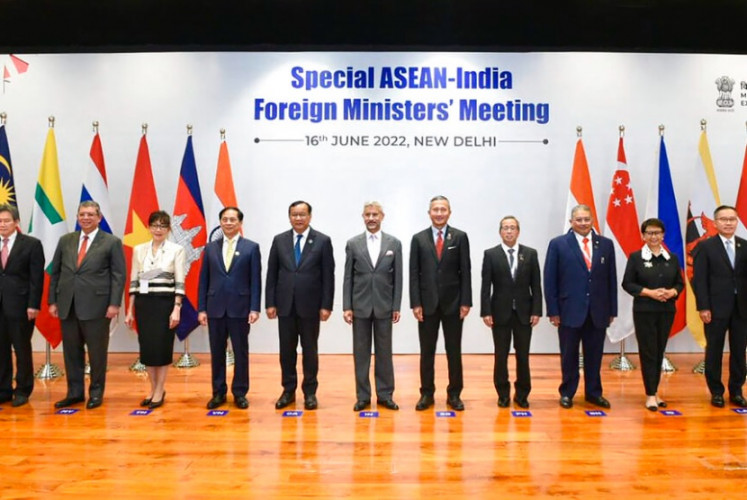GBHN yes, old system no
Change Size
 President Joko Widodo delivers a speech to the annual meeting of the People’s Consultative Assembly (MPR) in Jakarta on Aug. 16. (JP/Wendra Ajistyatama)
President Joko Widodo delivers a speech to the annual meeting of the People’s Consultative Assembly (MPR) in Jakarta on Aug. 16. (JP/Wendra Ajistyatama)
O
ne would not burn down their house to catch a mouse, and it would be wise for the political factions at the House of Representatives (DPR) and the Regional Representative Council (DPD) to take note of this in their endeavor to reinstate the now-defunct state policy guidelines (GBHN).
The factions’ concern that the country has progressed from one administration to another without an overarching goal is pretty legitimate. In the period following the fall of president Soeharto in 1998, one president after the other appeared to have simply muddled through, and once their terms expired there was little that they could claim as their major achievements.
In fact, policies of an outgoing president could easily be repudiated by his or her successor. One president wanted to have thousands of friends and zero enemies in international politics while another wanted to have friends that could benefit the country. One administration wanted to open the domestic market to imported goods while another wanted to erect trade barriers. Policies in the country have been swinging from one extreme to the other.
Without a doubt, the country needs a grand strategy that could in the long run be used as guidance for every administration on how to do the job.
For this problem, the factions at the House, spearheaded by the Indonesian Democratic Party of Struggle (PDI-P), have offered a sweeping proposal. Since a president cannot draft his own GBHN, they propose that the People’s Consultative Assembly (MPR), comprising 560 House members and 132 DPD members, be given the authority to draw up the guidelines.
And to ensure that each sitting president implements the guidelines, the MPR should be given the power as the highest-lawmaking institution to which the president must answer, effectively reviving the old system of government that came to an end thanks to political reforms.
We may finally be able to catch the mouse, having firm guidelines for the president, but only after burning down the whole house, surrendering the people’s right to elect a president and giving it to the MPR, if not oligarchs. Countries have either a presidential or a parliamentary system and in the past decade we have been served relatively well by the presidential system.
The early 1950s was legitimately one of the freest moments in the country’s democracy, but a revolving door of prime ministers stunted the country’s growth and years of chaos led to a growing authoritarianism that ended up with a regime change in 1965. Soon after, the MPR was abused by a strongman to maintain his grip on power. We do not want a repeat of that, do we?
There are also risks that the joint MPR session will open the door wide for a renewal of old political agendas, such as the DPD demanding legislative power that the Constitution gives exclusively to the DPR and Muslim-based parties reviving their dream of formalizing Islam in Indonesian politics.
Such possibilities cannot be discounted, therefore political maturity of each MPR member is imperative so as not to derail our hard-earned democracy.








